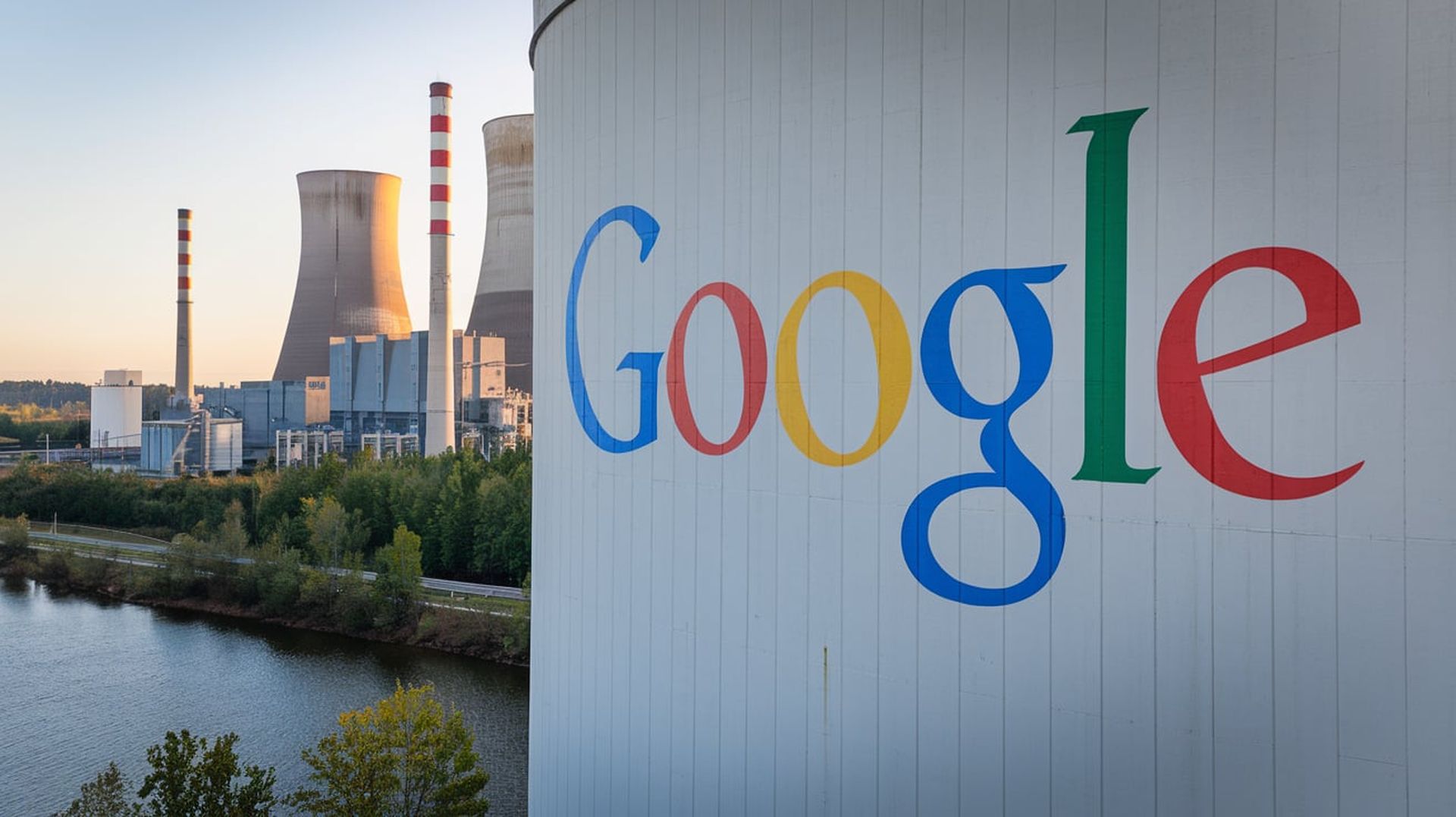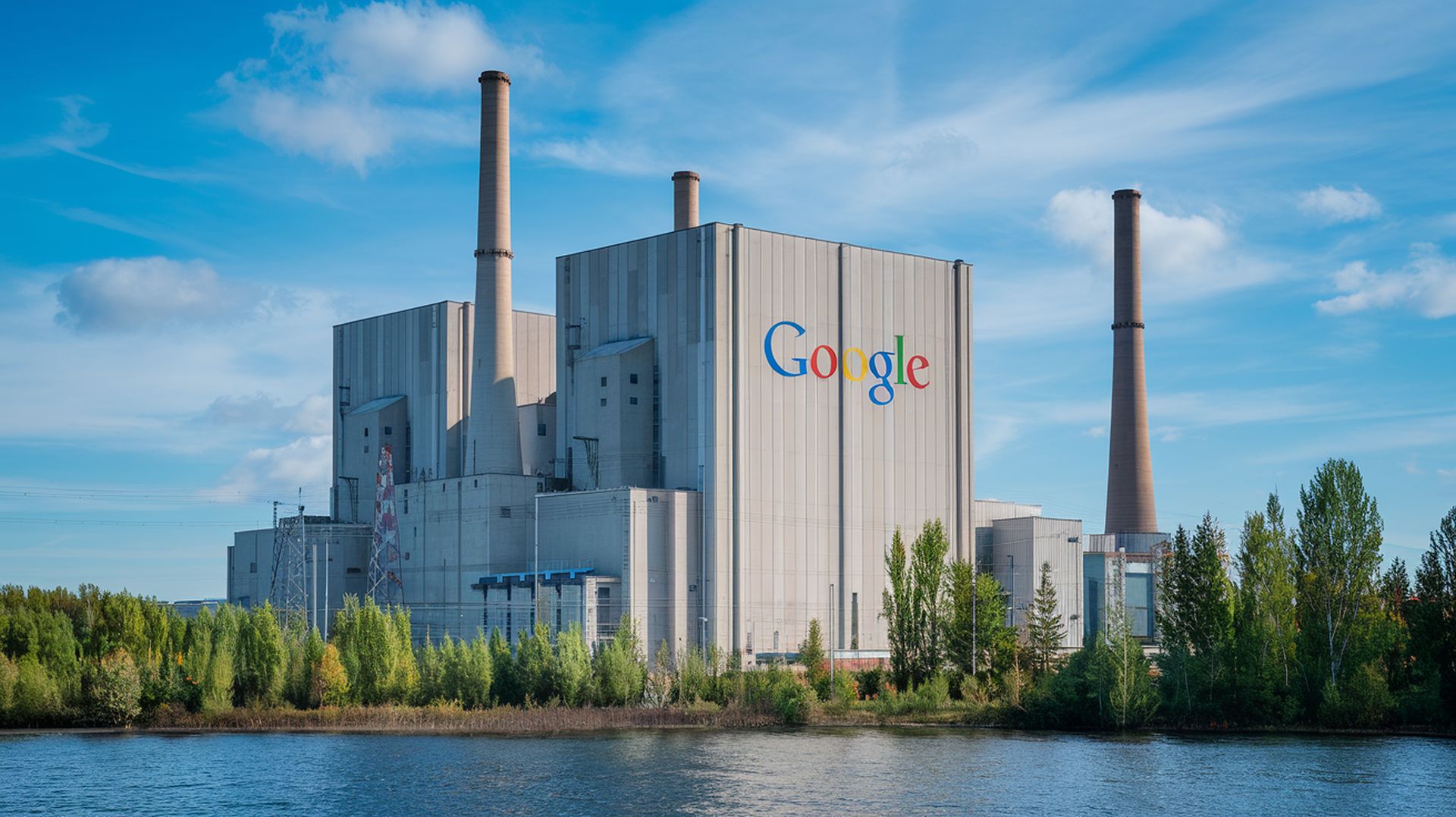and the distribution of digital products.
Google goes nuclear to supercharge AI data centers

Google’s growing focus on sustainable energy may soon incorporate nuclear power as a key resource for fueling its AI data centers, as hinted by CEO Sundar Pichai in a recent interview. The tech giant is actively exploring energy options that can support the immense demands of its operations while aligning with its ambitious environmental objectives. By 2030, Google has set a bold target to achieve net-zero emissions across all aspects of its global operations.
“A core focus of our goal to operate on 24/7 carbon-free energy (CFE) by 2030 is to accelerate the decarbonization of electricity grids around the world. Today’s grids are a major contributor to global greenhouse gas emissions, and electricity demand is expected to grow significantly in the decades ahead.”
Pichai acknowledged the scope of the challenge, especially as AI’s rapid expansion has significantly increased the company’s energy consumption. “It was a very ambitious target, and we are still going to be working very ambitiously towards it,” Pichai stated in his conversation with Nikkei Asia, underscoring that AI’s growth has made the goal even more challenging. Nevertheless, Google is not shying away from exploring advanced energy solutions, including small modular nuclear reactors, alongside continued investments in solar energy.
Where will Google locate its nuclear plants?While Pichai did not provide specific timelines or locations where nuclear energy would be introduced into Google’s energy grid, he made it clear that the company is seriously evaluating a range of cutting-edge technologies to support its sustainability efforts. Google’s interest in nuclear energy is not new; the company has long explored innovative clean energy alternatives.
A blog post and accompanying white paper from September 2023 reaffirmed its commitment to investing significantly in technologies such as geothermal energy and hydrogen power, which also hold promise in reducing carbon footprints.
 Pichai did not provide specific timelines or locations where nuclear energy would be introduced into Google’s energy grid
Pichai did not provide specific timelines or locations where nuclear energy would be introduced into Google’s energy grid
Google’s push towards nuclear energy is part of a broader trend among tech industry leaders. Rivals Amazon and Microsoft have already made moves to secure nuclear-generated electricity for their operations. Amazon, for instance, signed a $650 million agreement in March to purchase power from Pennsylvania’s Susquehanna nuclear plant, according to a report from The Financial Times. Similarly, in September, Microsoft entered into a 20-year contract to buy energy from the Three Mile Island plant, owned by Constellation Energy. This facility, which was decommissioned in 2019, is set to be reactivated by 2028.
As these tech giants ramp up their energy needs for data centers and AI development, nuclear energy is becoming an increasingly attractive option due to its ability to provide reliable, carbon-free power at scale. With industry leaders like Google, Amazon, and Microsoft setting the pace, nuclear power may soon become a cornerstone of the tech world’s shift toward sustainable energy sources, transforming how these companies manage their environmental impact while sustaining the vast power requirements of their demanding infrastructures.
Image credits: Kerem Gülen/Ideogram
- Home
- About Us
- Write For Us / Submit Content
- Advertising And Affiliates
- Feeds And Syndication
- Contact Us
- Login
- Privacy
All Rights Reserved. Copyright , Central Coast Communications, Inc.